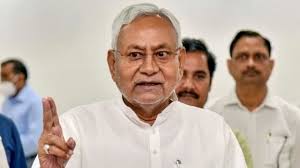NEW DELHI: The JD(U) on Wednesday sacked its Manipur unit chief for “acting on his own to withdraw support from the BJP-led N Biren Singh government.” The development signalled unease in the NDA with the Bihar Assembly elections just months away.
Though the JD(U) one of the key allies of the Modi-led government at the Centre acted swiftly, there is growing speculation about its ties with the BJP as the party hadn’t shown clear support to the Waqf Amendment Bill and opposed the new UGC rules announced recently. The JD(U) has just one MLA in Manipur Assembly, Mohammad Abdul Nasir. The drama when unfolded party’s state chief Ksh Biren Singh, in a letter to Governor AK Bhalla, conveyed the decision of withdrawing support to the government, saying the party’s lone MLA would sit in the opposition benches.
JD(U) national spokesperson Rajiv Ranjan said Singh had been removed due to indiscipline and asserted that the party would continue to support the BJP-led NDA, not just in Manipur but across the country.
The Congress was quick to take a dig at the NDA, which relies on support of key allies like the JD(U) and the TDP. “Today, the JD(U) withdrew support to the BJP government in Manipur. Yesterday, the JD(U) opposed the new UGC rules announced by the Modi government to control top appointments in all universities. Is this heralding political climate change?” Congress leader Jairam Ramesh said in a post on X.
In his letter to the Governor, JD(U)’s Ksh Biren Singh said, “In the 2022 state Assembly elections, six candidates fielded by the JD(U) were elected. Five of them defected to the BJP within months. The matter is still under trial under the Tenth Schedule of the Constitution in the Speaker’s Tribunal.”
Though the withdrawal of support would not have made any difference as the BJP has 37 MLAs in the 60-member Manipur Assembly besides the support of five MLAs of the Naga People’s Front and three Independents, the move signifies a certain unease within the NDA.
Earlier last month, the JD(U), in its stance on the Waqf Amendment Bill, had said it was in the process of collating responses from stakeholders before presenting its feedback to the joint parliamentary committee.


